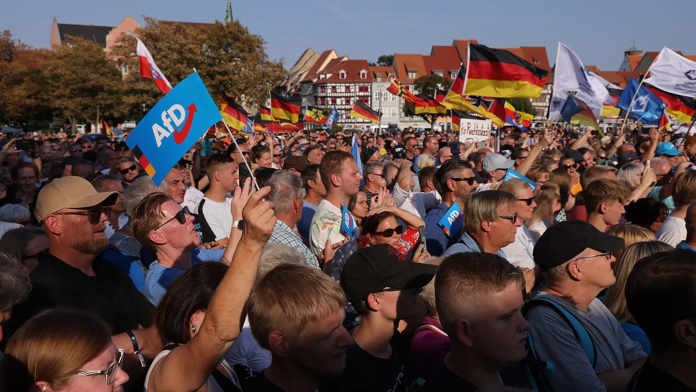Germany’s political landscape shifted dramatically as the Alternative for Germany (AfD) surged to 26% support in a Forsa Institute poll, overtaking the conservative CDU/CSU bloc led by Chancellor Friedrich Merz, which fell to 24%.
This marks the first time AfD led in this specific survey since April 2025, when it briefly reached 25%. The results, drawn from 2,500 respondents between 5-11 August, reveal deepening voter disillusionment with the ruling coalition, which now commands only 37% combined support.
Parallel to this realignment, Merz’s personal approval has plummeted to a record low of 29%, with dissatisfaction soaring to 67%. In eastern Germany, AfD’s stronghold, a mere 20% endorse his leadership. This collapse follows economic strains, contentious debates over long-range weapons for Ukraine, and Merz’s hardline migration policies, which critics label divisive.
Despite AfD’s gains, the party remains politically isolated under Germany’s “Brandmauer” (firewall) policy, where mainstream parties refuse coalition talks. This convention stems from May’s constitutional court ruling designating AfD “extremist,” though enforcement remains suspended pending appeals.
The stance has sparked internal conflict: Greens youth leader Jette Nietzard recently threatened “armed resistance” if AfD governs, whereas the SPD petitioned for its outright ban.
An INSA survey on 11 August placed CDU/CSU slightly ahead at 27% versus AfD’s 25%, suggesting volatile electorate sentiment. However, Forsa’s methodology, telephone interviews with high non-response rates, hints that AfD’s true support could be even higher, as reticent voters mask preferences.
Analysts attribute its resonance to public fatigue over inflation and Ukraine-related spending, exacerbated by the coalition’s internal discord.
